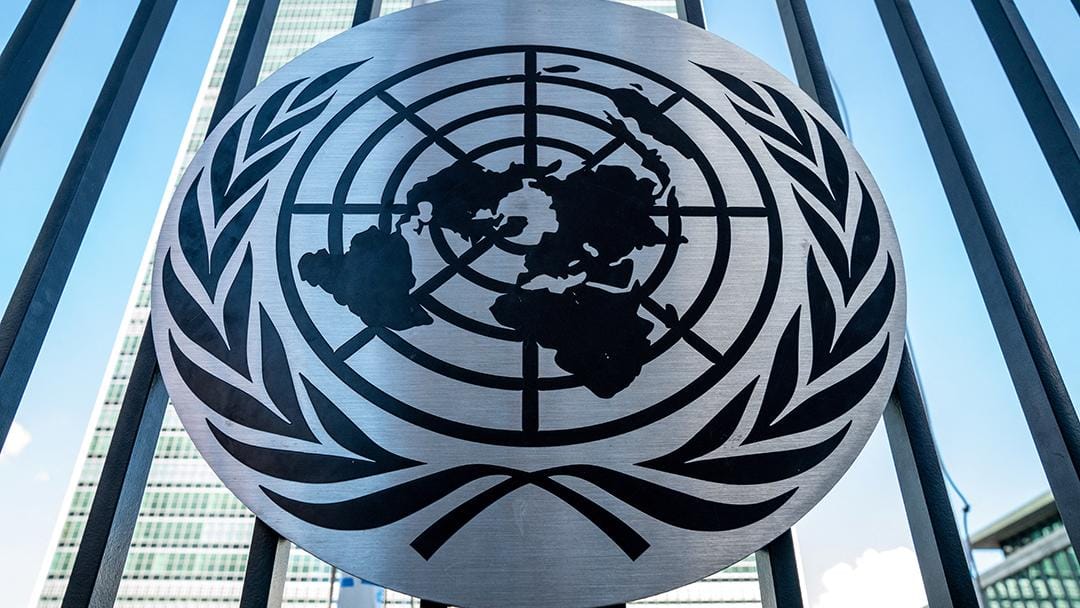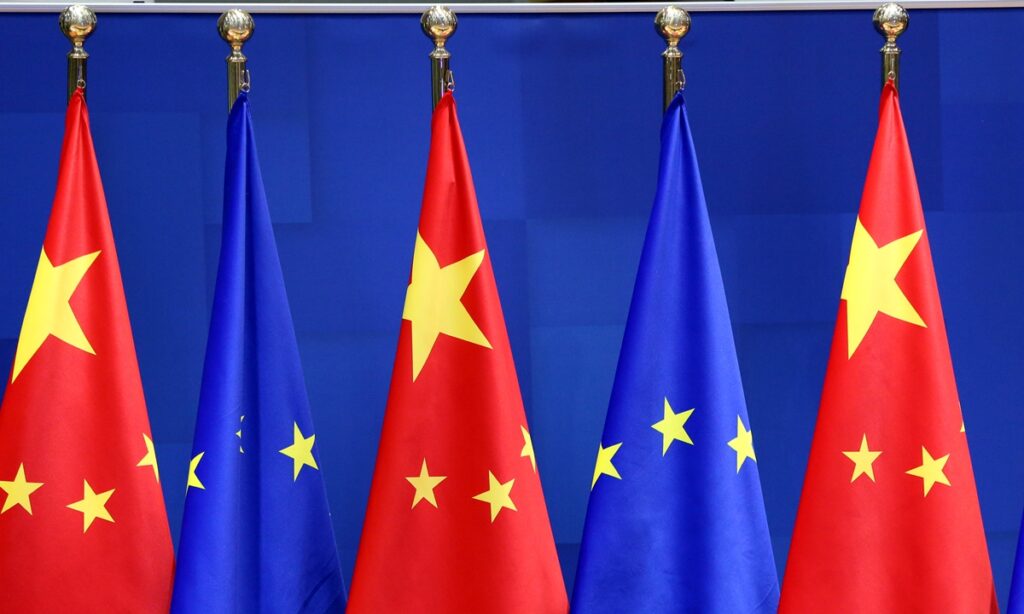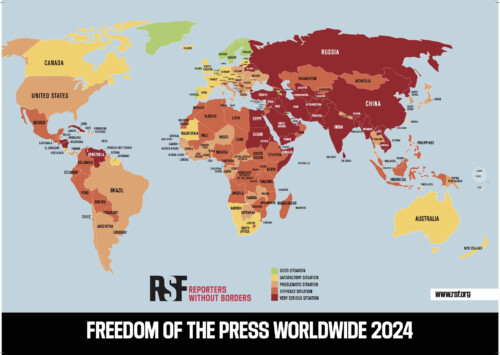Struck with collective policy paralysis, EU needs a bold and smart strategy on China

EU's lack of clarity on China has led to its failure in assessing the potential threat China poses to its vital interests
Over the past three years or so, this vast economic, strategic and political power has been in a rather volatile state in terms of its domestic politics, its foreign policy and has been dealing with a struggling economy.
The above description could fit China as well as the European Union, two distinct parts of the world, separated by almost half the world in between them.
While China has been hit hard by the Covid-19 pandemic, the ongoing economic and political tensions with the United States, the European Union finds itself in a similar place, though for entirely different reasons and mostly due to its own doing.
Similarly, while China has become more autocratic at home, confrontational and unpredictable abroad, the European Union, predictably appears divided and confused on most aspects of its domestic politics, foreign and strategic policies and the economy is far from flourishing.
It is this lack of clarity in the European Union which has led to its failure to assess and acknowledge the potential threat that China poses to EU’s vital interests, let alone try to take preventive action or even prepare for action to protect itself.
In the meanwhile, the challenges to the European Union, in particular, and to the world in general, posed by China are increasingly becoming dangerous, and rapidly evolving too. To address these challenges, EU will need to revisit its China strategy, if indeed there exists such a strategy.
The Covid-19 pandemic has changed the perception that many countries had about China. It is no longer viewed as a country which has patience, which believes in transparency and has respect for international opinion or even international laws. The EU needs to articulate how it sees China challenge more squarely than has been before.
For a long time, trade strategists, policy makers and liberalists in the EU have debated that prosperity and economic development would, in time, lead inexorably transformation of China’s political system. In the last few years under President Xi Jinping, this has turned into a pipedream and there is no evidence that China’s Communist Party will ever formulate a clear and effective strategy for responding to international concern or change its stance on highly divisive issues.
The challenges that the EU faces today are not simply a matter of simplifying its complex decision-making process and procedures, but the challenges of substance reflecting major geo-political and geo-economical changes in the last decade. EU’s unwillingness to take on China speaks volumes about the onset of a collective paralysis in decision-making process in the EU.
Over the past 16 months, the outbreak of the war in Ukraine seems to have completely hijacked EU’s agenda and focus areas, leading to a situation where it is having a serious impact on the conduct of EU diplomacy in almost all its dimensions. But in the meanwhile, events over the last year or so show there is an urgent need for the EU to design and execute a creative and bold China strategy.
Since conditions have changed dramatically on many fronts over the past five years, EU’s China policy needs a comprehensive review and a strong resolve. However, it appears that EU is less than willing to confront the changed real world and is yet to understand the real identity and nature of the threat it faces from China. EU seems vigorously following the principle that diplomacy is the subject of frequent consultations even as China is slowly shutting all doors closed for any meaningful consultation.
Four decades ago, Europe barely needed to trade with China because it was self sufficient in almost everything except oil. Today, the EU economy and life in the region would come to a standstill were China to be removed from the scene.
The extraordinary shift from self-reliance to far reaching dependence on China was a flawed strategy right from the beginning, but it needs an urgent and comprehensive course correction. It is also important not to overlook the magnitude of changes that are taking place in China and how China is reshaping the economic and political landscape of Europe. Beijing has studied Brussels as no county has. It has oiled the nuts and bolts of the Brussels bureaucratic machinery and is comfortable to confront them.
Unsustainable China strategy

China’s cancellation of EU High Representative Borrell’s visit is just the latest in a series of provocations
The European Union and China have two different visions about foreign policy and in this context EU’s current China strategy is not sustainable. The EU says it is committed to developing a well-considered and careful global strategy that is infused with democratic values and human rights obligations. The European Union’s commitment to its founding principles of human rights, democracy and the rule of law and its attachment to promoting good governance and effective multilateralism must also remain the main pillars of its policy vis-à-vis China.
Even with Brexit, the EU represents the largest borderless trading bloc on the globe creating unparalleled bipolarity. It is not only democracy and rule of law that makes EU a great power, it is the openness which makes EU a magnet for global attention. Despite its strength and global importance, it appears EU is fast asleep at the wheel as China moves to undermine and shake EU’s politics and economics.
Something unexpected happened early this month. China abruptly cancelled the planned visit of EU High Representative Josep Borrell without giving any convincing reason. This is not new. China has been provoking and testing EU’s patience for a long time. Such provocations are not coincidences or accidents, they are the purposeful actions of a communist dictatorship that is determined to confront with its might. The fact that response from EU on China’s erratic and un-diplomatic behaviour was muted, speaks volumes about something not being right with EU’s policy towards China.
A relationship that has so far been perceived as cooperative is now viewed as fundamentally competitive in Beijing and Brussels alike. Since March 2019, the European Union has referred China as a ‘systemic rival’, but the EU must come to terms with the new fact that China is much more than just a mere competitor. The Communist China is a potential enemy.
During the last five years the bilateral relations have deteriorated, the diplomatic distance between Brussels and Beijing has widened and mutual confidence has vanished. Brussels seems no longer interested in Chinese Chow Mein and Beijing in Brussels Moules. They have had this enough.
Not too long ago, Borrell had described his discussion with Chinese government as ‘dialogue of the deaf’. His frustration could be understood by the fact that China has not moved even an inch from its position on the country’s political system and practice. China is aware that in less than a year Brussels will have a new European Commission and as such engaging with existing team of the EU for any fruitful and meaningful discussion will be waste. This is why China is following the policy of “carefully careless”.
It can therefore be safely said that after nearly 30 years of mutually beneficial interaction, European Union-China relations today look increasingly fragile, and this nascent détente is now in a critical condition. In the corridors of power of the European Union, the message is that any future détentes would be similarly vulnerable to derailment.
The EU faces many challenges and war in Ukraine has only added to the list. EU’s economic challenges are also compounded by a demographic one. In almost all EU countries, the current birthrate is not likely to sustain the present population, which is already inadequate to meet the needs for labour in a globalised economy. Among its broader and more complex foreign policy, China is taking advantage of Europe’s falling birthrate, aging population to become the factory of the world and EU’s largest trading partner.
China’s influence and engagement in the EU and its neighbourhood remains mostly economic. The growth of Chinese exports to the EU has been most remarkable in high-technology sectors, thus challenging the traditionally strong position of the European economies in these sectors.
Whatever happens in Brussels and Beijing has its impact on New Delhi too because for better or worse, fortunes of india and China are interlinked. How they manage their relations will also have an impact on politics and economic stability of the EU. Also, EU’s growing disillusionment with China over the past five years has made New Delhi a relatively more important player.
In the absence of a focused China policy in Brussels, China is exploiting the policy weakness and is finding ways to quietly advance its interests in Asia, Africa, South America, and the Middle East. China’s growing clout itself undermines European interests, in addition to giving China leverage with which to harm EU’s interests directly. China is not an honest partner of EU on the climate change issue and the country has often used climate as bargaining chip for trade benefits.
Semi-conductor saga
The recent tightening of semiconductor regulations by the Biden administration has been a source of frustration for the Chinese President Xi Jinping. For China, America’s new policy amounts to stripping China of its right to use advanced technologies and products from the West. What is even more unsettling for President Xi is that the US has essentially transitioned from a stance of strategic ambiguity to one of strategic clarity in its Taiwan policy. Not only has this resulted in increased arms shipments to Taiwan, but it has also led to the mobilisation of Japan, South Korea and the Philippines, improving Washington’s defensive position in the Taiwan Strait.
The annual report published in April by the Dutch intelligence agency warned that countries wishing to steal expertise are drawn to the Netherlands, with China recognised as being the biggest threat. It said that China uses both legitimate investments, corporate takeovers, and academic cooperation, as well as espionage, insiders, covert investments, and illegal exports. Dutch companies, knowledge institutions and scientists are regularly victims of this, the report said.
Although China is a significant commercial partner for the Netherlands, efforts to acquire Dutch and Western technologies are being driven by China’s military goals. This is why in March, the Dutch government blocked China from having access to chip manufacturing technology, heating up a longstanding conflict with Beijing over semiconductors. This made China furious and EU’s silence added to its frustration.
Great Wall around Europe
Unable to advance its interests to the same extent as earlier in western EU, China has started reaching out to ex-Communist countries in Central and Eastern to join China’s vision of peace and prosperity. It is like China is building a Great Wall within Europe to divide the countries on the lines of their relationship with China.
Symbolically, it seems that the new Great Wall in Europe is blocking the expansion of traditional Western values such as freedom and democracy, and instead installing a Chinese-style economic development model under the Belt and Road Initiative. Of the 17 countries in the Central- and Eastern-European countries targetted by China, 12 are members of the European Union. What is most worrying is that EU member states have been assuming a tolerant posture toward China’s advancement into their region, taking into consideration the enormous trade benefits Chinese market holds for EU’s economy.
It should worry the EU member states that their national security is also under threat from Chinese spy networks. Chinese intelligence network is believed to have penetrated every sector of EU’s economy. The EU countries have failed to grasp the seriousness of this, and to say bluntly, have no strategy to tackle scale of the threat. The network has targeted universities, research institutes, laboratories and think tanks.
China’s State intelligence apparatus, that is said to be the largest in the world with hundreds of thousands of civil intelligence officers, has long been targeting EU’s interests prolifically and aggressively. The challenge of the rise of China absolutely raises huge questions for the future of the EU and it must wake up to make the right decisions to protect its interest.
The European Union faces an existential threat not only from China but also from within. The European Parliament, the legislative arm of the EU, has become a loose cannon with a highly questionable behaviour and is operating like an agency of foreign governments. With its misdirected actions in unpredictable directions, the Parliament is losing its credibility, respect, and value. The European Parliament is also in the habit of adopting resolutions, interfering into other country’s internal affairs and making undesirable statements. This is eroding Parliament’s influence and defeating the reason for it exists. The bribery scandal has already damaged European Parliament beyond repair and yet the parliamentarians are not ready to learn.
The actions of the Parliament and the lack of action by Brussels is only pushing EU further into uncharted territory and into an uncertain future.
Sunil Prasad, is the Secretary General of Brussels based Europe India Chamber of Commerce and the views expressed here are his personal views.









